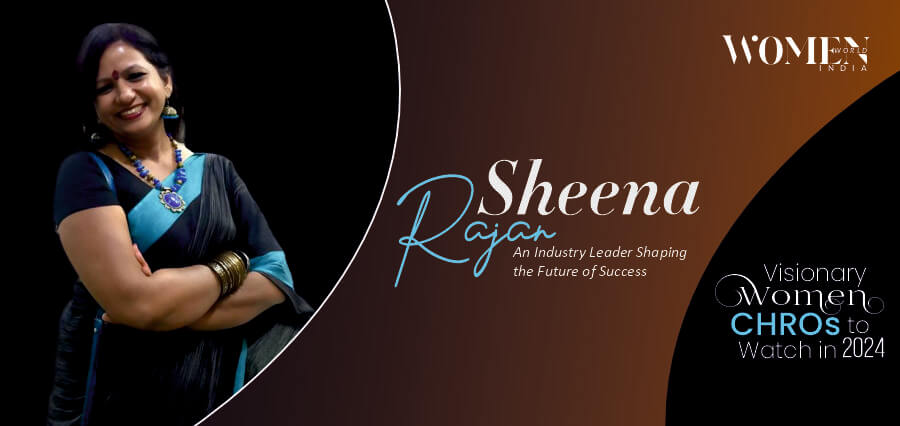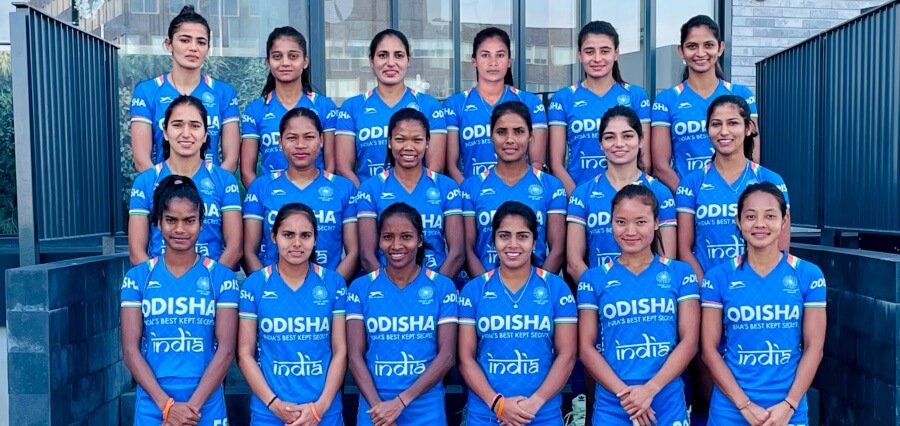Possessing all the hallmarks of a true leader, Sheena Rajan, a highly motivated HR professional, boasts an impressive 27-year career across diverse industries like hospitality, energy, manufacturing, and pharmaceuticals. Renowned for her sharp business sense and lasting impact, she’s a true HR leader with extensive experience.
Sheena is the Co-founder and CHRO, Head – Payroll Management Business of Flamingo BPO Technology Solutions Ltd and board of Director for FBTS Executive Search Pvt. Ltd.
Sheena’s impressive academic background includes an MBA in HR, a Master’s in Leadership Science, a postgraduate qualification in Psychology, and a certification in Neuro-Linguistic Programming. Her proven track record complements this academic strength as a global leader, and she is admired for her excellent people management, strong work ethic, and change management expertise.
Sheena’s motto, “Build a strong foundation with the bricks that others throw on you,” reflects her ability to overcome challenges and transform them into opportunities for growth. Her leadership style emphasizes collaboration and community, breaking away from the traditional, aloof leader model. She says, “I’m not a leader who dictates from an office; I’m known for being alongside my team and working together.” She’s more than just an HR professional; she’s a transformative leader who constantly pushes the boundaries of what’s possible in HR and beyond.
Talent Always Shines Through
Sheena’s South Indian background strongly emphasized typing jobs as a path to stability, so she began her career as a typist—a primary aspiration her parents held for her. She transitioned into secretarial roles from these humble beginnings, ultimately becoming a secretary.
To further her career, she pursued a secretarial course, leading her to a role as a secretary to the Managing Director at Pennzoil (Part of Shell India) . Her predecessor, who held the position for nearly a decade, left a significant legacy to follow. Despite the company’s small size and limited organizational structure, she saw this as an opportunity and actively sought to expand her responsibilities beyond the typical duties of a secretary.
Sheena began contributing ideas to streamline and improve HR processes. Her enthusiasm and innovative suggestions, such as developing checklists and enhancing filing systems, caught the attention of the HR Director. Recognizing her potential, he encouraged her to take on more, including conducting interviews. This sparked a passion for HR within her, leading the HR Director to suggest a career path.
However, the lack of formal HR qualifications presented a challenge. After a decade of leaving studies, she pursued a diploma in HR while still working. Her interest in the subject flourished, and she completed a master’s degree in HR. This dedication and natural affinity for the field, combined with the HR Director, Mr. K.G. Satheesan’s belief in her potential, earned her the HR Executive position.
Sheena’s journey in HR was transformative. After working at Shell, reporting to only one HR leader, she ventured into leadership roles across various organizations. Whether in family-owned businesses or startups, she implemented significant changes. In the hospitality sector, where she joined around 2009, HR was traditionally viewed as limited to payroll and recruitment. She challenged this perception by introducing initiatives that fostered employee engagement and recognition.
One of her first projects was organizing an annual employee function. Despite initial reservations and limitations, Sheena’s goal was to create a sense of community and fun. She persevered in her mission to showcase how HR could contribute to business success by fostering a positive workplace culture. This journey from a typist to an influential HR leader exemplifies how talent and dedication can pave the way for meaningful and impactful career advancements.
The Paradigm Shift
Sheena reflects on her journey, highlighting a significant shift in her approach to human resources and leadership. She describes the need to adapt her management style across various industries and organizational cultures, from a corporate environment like Shell to settings with more diverse employee backgrounds. She emphasizes the importance of tailoring HR practices to fit the industry and the people involved.
In the hospitality sector, where she worked until 2013, Sheena implemented lasting changes in induction programs, policies, and processes. Her contributions were so impactful that the policies she established are still in place today, carrying her signature and legacy.
She also discusses her experience in family-driven organizations, which often involve complex dynamics with relatives holding positions of influence without necessarily understanding the business. In such environments, Sheena learned to balance professional expertise with the nuances of family relations, fostering a more HR-driven and professional culture while maintaining harmony with family members. This approach has earned her lasting respect and personal connections, and she has even been invited to family functions.
Sheena’s story illustrates how adapting to different organizational contexts and maintaining a flexible, professional outlook can lead to enduring success in HR. She dreams of continuing to become a Chief Human Resources Officer (CHRO), showcasing her dedication to the field.
Flying to Foreign Shores
Sheena’s career took a remarkable turn when she transitioned from Chief Human Resources Officer (CHRO) to Director of Singapore Operations. She quickly became a trusted leader in this role, profoundly impacting the organization and its people. Her influence transformed colleagues from novices into accomplished professionals, fostering strong bonds that made them regard her as a family member.
Her journey led her to Dubai, where she faced a different challenge: managing a predominantly labour-oriented workforce, with 70-80% of employees in labour roles. Sheena’s efforts in Dubai were transformative; she successfully reduced labour-related issues, earning the “Taqdeer Award” it’s a recognition from the UAE government for her significant contributions.
Her exceptional work in Dubai garnered several accolades, including the prestigious “Best HR in Dubai” award—where she stood out as the only Indian recipient—and the “Best Indian Woman Leader in UAE” award. These global recognitions highlighted her immense contributions and further solidified her reputation as a leading HR professional.
Having returned from Dubai, Sheena’s experiences abroad have opened new opportunities and adventures, setting the stage for a promising future.
Back into the Homeland
In 2023, Sheena returned to India, driven by homesickness and the growing trend of ‘Emiratization’ a policy favouring hiring nationals over expatriates. Her time abroad had left her feeling isolated, with her three grown sons back in India. This shift led her to leave her position as CHRO and seek new opportunities closer to home.
With her sons now independent professionals, Sheena was free of personal responsibilities and ready to explore new ventures. She began consulting and delved into recruitment, refusing to sit idle. An unexpected meeting with Adarsh, the CEO and co-founder of Flamingo Infinite, led to an exciting new chapter. Sheena became the co-founder of a BPO (Business Process Outsourcing) company, expanding her career in an entirely new direction.
Starting with modest office spaces, Flamingo Infinite has quickly grown, acquiring two companies—one in recruitment and another in digital services. With Sheena as a key figure alongside seven other CXOs, many of whom hail from Tata, the company is on a promising path to becoming the next unicorn. Sheena is thriving in her new role and finds herself in a happy and fulfilling space in her career.
The Shifting Trends in HR
Sheena reflects on the evolving role of human resources (HR) and the transformative trends reshaping the field. Initially, HR was synonymous with administrative tasks like timekeeping and was often relegated to roles like payroll and recruitment. Historically referred to as “personal management,” the department’s primary responsibilities were limited. The accounts department frequently handled payroll duties due to their confidential nature but has since been integrated back into HR as organizations recognized its crucial role in shaping company culture.
Sheena highlights a paradigm shift where companies increasingly understand the importance of HR in building a cohesive and vibrant organizational culture. The perception of HR has shifted from being merely administrative to being a cornerstone of organizational soul and culture. Despite the rise of Artificial Intelligence (AI) and automation, Sheena believes that HR’s dynamic nature cannot be replicated by technology. HR involves complex human emotions and interactions that require a nuanced understanding and empathy that machines cannot provide.
She acknowledges that AI will transform many jobs and create uncertainty but remains optimistic that new opportunities will emerge. The fear of job displacement due to technological advances is reminiscent of the initial anxiety when computers were introduced, yet new roles and industries flourished. HR professionals will continue to be critical in navigating these changes by understanding and addressing employees’ concerns.
Sheena’s experience during the COVID-19 pandemic underscores the importance of HR in maintaining employee morale and well-being. She recounts how her organization ensured zero casualties, supported employees’ mental health, and maintained job security by offering allowances, bonuses, and timely salaries. These actions alleviated employees’ anxieties and fostered loyalty, reducing attrition to an impressive 1%.
Looking ahead, Sheena emphasizes the need for HR professionals to embody human qualities, engage with employees personally, and understand ground realities. While AI may handle technical aspects of HR, the essence of HR will always lie in its human touch, making it indispensable in creating and maintaining a thriving workplace.
Her Thoughts on Gender Equality
Sheena reflects on gender equality, addressing the nuanced dynamics and challenges women face in professional environments. She clarifies that she does not identify as a feminist in the traditional sense but recognizes the complexities surrounding gender roles and expectations. She emphasizes that once women step into the professional world, they should not be seen as needing special treatment simply due to their gender. She believes men and women can and should perform equally in their roles without relying on gender-based sympathy or advantages.
Sheena acknowledges the existence of policies like the Prevention of Sexual Harassment (POSH) that aim to protect women in the workplace, which she supports, understanding the vulnerabilities and sensitivities that women may experience. However, she notes that despite these protections, there remains a significant disparity in pay and recognition between men and women, even at high levels of leadership. She shares her experiences as a Chief Experience Officer (CXO) and observes male counterparts with less experience and qualifications, earning significantly higher salaries. She stresses that women have to work much harder to achieve the same recognition and compensation as men, and they are often unfairly judged or stereotyped.
In her career, Sheena has witnessed women being underestimated and their efforts undervalued, often attributed to favouritism rather than merit. She points out that in board meetings, where she was usually the sole female member, she noticed a tendency to typecast and overlook women’s contributions. She urges a shift in perspective, advocating for a workplace where women are judged by their abilities and contributions rather than their gender or perceived roles.
Ultimately, Sheena calls for a broader change in how gender equality is approached in the corporate world. She highlights the need for a shift away from traditional stereotypes. She urges men and women to recognize and respect each other’s professional capabilities, moving beyond outdated perceptions that limit opportunities and reinforce inequality.





